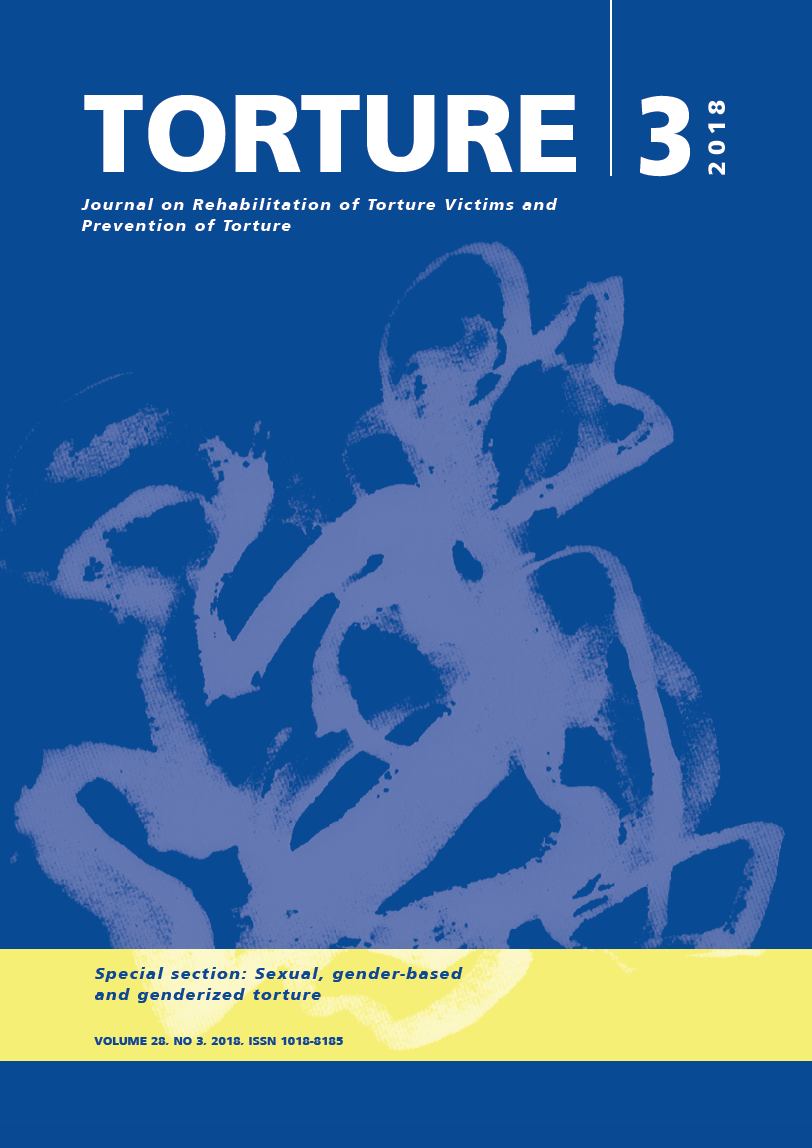Breaking the silence through MANTRA: Empowering Tamil MAN survivors of torture and rape
DOI:
https://doi.org/10.7146/torture.v28i3.111181Keywords:
Male sexual torture, specialised group therapy, reflective narrativeAbstract
Introduction: The prevalence of sexual torture, including rape as a form of torture against men in the context of war and persecution, has been widespread throughout history and across cultures. Despite this, literature examining this highly complex and pervasive problem has only recently begun to emerge. This is partly a reflection of the taboo nature of the topic, which results in lack of disclosure, a poor understanding of the issue, and leads to gaps in effective therapeutic interventions. Objective: This paper aims to provide a reflective narrative on an intervention trialled at the NSW Service for the Treatment and Rehabilitation of Torture and Trauma Survivors (STARTTS). It outlines the therapeutic strategies that were integrated in culturally sensitive ways and the phases and themes that emerged as the men overcame their resistance to speak about their experiences of torture. Results: The combination of group and individual therapy that integrates exposure therapy in a culturally appropriate way can assist clients to revisit their traumatic experiences and ‘break their silence’ as they heal and recover. Conclusions: When male survivors of sexual torture share and verbalise their past horrors it assists them to make meaning and develop a new, broader perspective, on their experiences. Accompanied by a diminishing sense of shame, and “therapeutic activism” it instils hope and the motivation to assist others in crisis, particularly regarding the issue of male rape.
Downloads
Published
How to Cite
Issue
Section
License
We accept that some authors (e.g. government employees in some countries) are unable to transfer copyright. The Creative Commons Licence Attribution-NonCommercial-NoDerivatives 4.0 International (CC BY-NC-ND 4.0) covers both the Torture Journal and the IRCT web site. The publisher will not put any limitation on the personal freedom of the author to use material contained in the paper in other works which may be published, provided that acknowledgement is made to the original place of publication.


